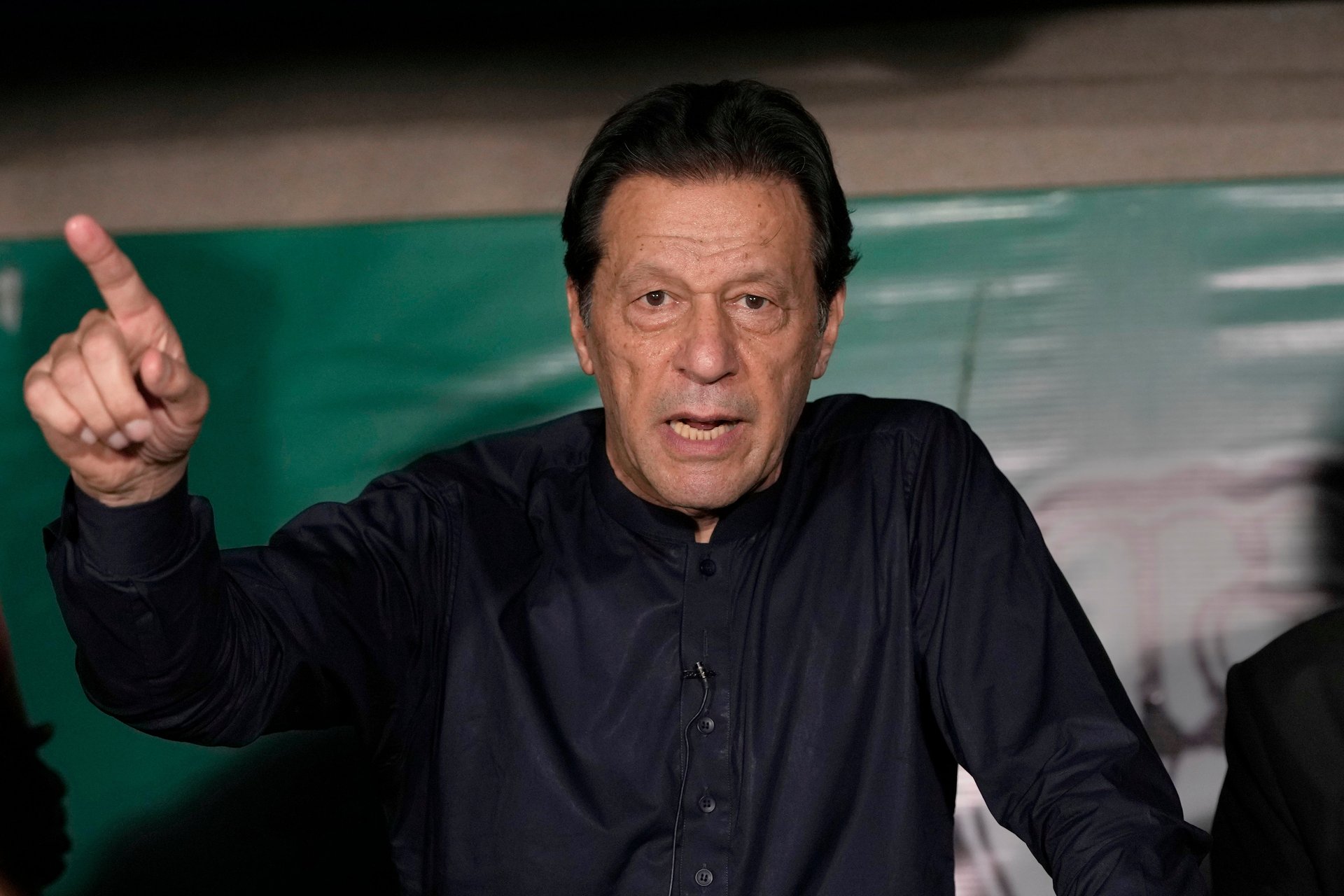Pakistani ex-Prime Minister Khan wants the IMF to link talks to an independent audit of the election
Pakistan’s imprisoned former Prime Minister Imran Khan is writing a letter to the International Monetary Fund urging it to link any talks with Islamabad to an audit of the country’s recent election

ISLAMABAD (AP) — Pakistan’s imprisoned former Prime Minister Imran Khan is writing a letter to the International Monetary Fund urging it to link any talks with Islamabad to an audit of the country's recent election, which his party alleges was rigged, an official from his party said Friday.
Suggested Reading
Senator Ali Zafar, a top leader from Khan's Pakistan Tehreek-e-Insaf party, or PTI, made his televised remarks after meeting with Khan at the Adiala prison, where he's serving multiple prison sentences.
Related Content
The latest development came days before the IMF releases a key installment of a bailout loan to Pakistan.
It also comes a day after IMF spokesperson Julie Kozack said the global lender was ready to work with Pakistan's new government “on policies to ensure macroeconomic stability and prosperity for all of Pakistan’s citizens.”
The Washington-based IMF hasn't commented on Khan's much-publicized move to write the financial agency a letter.
Khan has come under severe criticism at home from his rivals who claim Khan tried to block a tranche of $1 billion from the IMF to Pakistan to harm the country’s economy.
Pakistan narrowly averted a default on foreign payments last summer when the IMF approved the much-awaited $3 billion bailout for it following monthslong talks with former Prime Minister Shehbaz Sharif, who replaced Khan after his ouster in a no-confidence vote in parliament in 2022.
Sharif is in talks with his allies to form a coalition government because no party could get a majority in the Feb. 8 vote.
On Friday, Sharif's Pakistan Muslim League or PML-N has emerged as the largest party after it got 20 seats out of the 60 reserved for women, and four seats out of 10 reserved for minorities, officials said. Nine independent members have also joined Sharif's party.
Now, PML-N enjoys the support of a total of 108 lawmakers in the parliament, according to state-run media. It said Sharif's ally, the Pakistan People's Party, or PPP, received 14 seats out of the 70 seats reserved for women and minorities, and now PPP enjoys the support of 68 members in the National Assembly.
Khan's party has yet to receive seats from the quota reserved for women and minorities.
Though Khan’s candidates won 93 out of 265 National Assembly seats in the election, it wasn't enough to form a government. Khan's party says it has evidence that officials changed the election results in dozens of constituencies to convert the victories of its candidates into defeat, a charge the Election Commission of Pakistan denies.
“The PTI candidates who were winning (in the election) were defeated” because of rigging the vote, Zafar said, adding that Khan wants the IMF to call for an independent audit of the election before it continues talks on the release of loans for Pakistan.
The IMF and Khan's former government have been at odds since the former premier didn't fully comply with a 2019 agreement under which he got a $6 billion bailout. The release of a key tranche from that bailout remained on hold, causing a sudden increase in inflation and a devaluation of Pakistani's currency against the U.S. dollar.
Sharif, who is set to become the country's new prime minister, has said he will negotiate another bailout with the IMF in an effort to combat inflation and improve the country's ailing economy, which is the biggest challenge he faces.